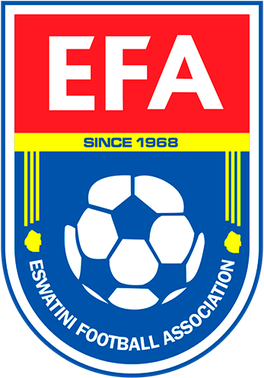See also
| 20th century | |
|---|---|
| 21st century | |
Years in Africa | |
|---|---|
| Sovereign states |
|
States with limited recognition | |
Dependencies and other territories |
|
This is a list of years in Eswatini .

Eswatini, officially the Kingdom of Eswatini and also known by its former official name Swaziland, is a landlocked country in Southern Africa. It is bordered by Mozambique to its northeast and South Africa to its north, west, south, and southeast. At no more than 200 km (120 mi) north to south and 130 km (81 mi) east to west, Eswatini is one of the smallest countries in Africa; despite this, its climate and topography are diverse, ranging from a cool and mountainous highveld to a hot and dry lowveld.
The economy of Eswatini is fairly diversified. Agriculture, forestry and mining account for about 13 percent of Eswatini's GDP whereas manufacturing represent 37 percent of GDP. Services – with government services in the lead – constitute the other 50 percent of GDP.
The Umbutfo Eswatini Defence Force (UEDF) is the military of the Southern African Kingdom of Eswatini (Swaziland). It is used primarily during domestic protests, with some border and customs duties; the force has never been involved in a foreign conflict. The army has struggled with high rates of HIV infection. Since measures were put in place the rate is dropping.

Mbabane is a city in Eswatini, and is one of the two capitals, serving as the executive capital.

Mswati III is Ngwenyama (King) of Eswatini and head of the Swazi royal family.

The Swazi or Swati are a Bantu ethnic group native to Southern Africa, inhabiting Eswatini, a sovereign kingdom in Southern Africa, and South Africa's Mpumalanga province. EmaSwati are part of the Nguni-language speaking peoples whose origins can be traced through archaeology to East Africa where similar traditions, beliefs and cultural practices are found.
The music of Eswatini is composed of both ethnic Swazi music and varieties of folk music as well as modern genres such as rock, pop and hip hop, which has been popular in Eswatini since headed by bands such as Vamoose. The popularity of hip hop in South Africa, which shares a border with Eswatini, has also helped popularize it. Today the music industry of Eswatini is growing, with more young and vibrant musicians emerging in the scene proving to be worthy of the crown.

The Eswatini national football team, nicknamed Sihlangu Semnikati, represents Eswatini, formerly known as Swaziland, in international football and is controlled by the Eswatini Football Association. It has never qualified for the World Cup or the Africa Cup of Nations finals. Swaziland's best performance in an international tournament is a semi-final finish in the COSAFA Cup.

Lobamba is a city in Eswatini, and is one of the two capitals, serving as the legislative, traditional, spiritual, seat of government of the Parliament of Eswatini, and Ludzidzini Royal Village, the residence of Queen Ntfombi, the Queen Mother.

Eswatini is an overwhelmingly Christian majority country, with adherents of Islam being a minuscule minority. Due to secular nature of the Eswatini's constitution, Muslims are free to proselytize and build places of worship in the country.

Eswatini–United States relations are bilateral relations between Eswatini and the United States.

Christianity is the predominant religion in Eswatini, with Protestantism being its largest denomination.

A foreign national wishing to enter Eswatini must obtain a visa unless they are a citizen of one of the eligible visa exempt countries.
The Miss Eswatini is a national beauty pageant in Eswatini. The pageant was named Miss Swaziland beauty pageant and rebranded to be Miss Eswatini Organization in 2018. The pageant winner aims to be an ambassador of her country. Eswatini last competed at Miss Universe 1994 when Nicola Smith, Miss Swaziland 1994 competed for the crown. This year winner is Tania Nunn who crowned on November 28, 2022.

Eswatini–India relations refers to the international relations that exist between Eswatini and India. India also maintains a resident High Commission in Mbabane established on 13 August, 2019. Eswatini does not have a diplomatic mission in India.
Eswatini remained a British protectorate throughout World War II. As such, it fought alongside the Allies against the Axis. While no large scale battles or major military operations took place in or around Eswatini, the colony did supply the Allies with troops during the war. World War II was also responsible for several important domestic developments in Eswatini.
COVID-19 vaccination in Eswatini is an ongoing immunisation campaign against severe acute respiratory syndrome coronavirus 2 (SARS-CoV-2), the virus that causes coronavirus disease 2019 (COVID-19), in response to the ongoing pandemic in the country.
Capital punishment is a legal penalty in Eswatini, formerly known as Swaziland. Despite its legality, no executions have been carried out since 1983. Therefore, Eswatini is classified as "abolitionist in practice."